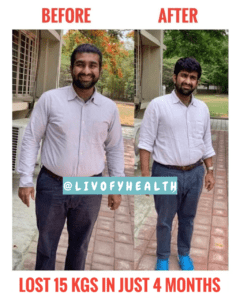What Is Hypothyroidism?
The opposite is hyperthyroidism, where the thyroid produces too much thyroid hormone. However, the link between hyperthyroidism and hypothyroidism is complex, and one can lead to the other, in certain circumstances.
It is an endocrine gland, made up of special cells that make hormones. Hormones are chemical messengers that relay information to the organs and tissues of the body, controlling processes such as metabolism, growth, and mood.
The production of thyroid hormones is regulated by thyroid-stimulating hormone (TSH), which is made by the pituitary gland. Hypothyroidism occurs when your body doesn’t produce enough thyroid hormones.
The thyroid gland is found in the front of the neck below the larynx, or voice box, and has two lobes, one on each side of the windpipe. The thyroid is a small, butterfly-shaped gland that sits at the front of your neck.
Your thyroid is responsible for providing energy to nearly every organ in your body. It controls functions like how your heart beats and how your digestive system works. Without the right amount of thyroid hormones, your body’s natural functions begin to slow down.
Also called underactive thyroid, hypothyroidism affects women more frequently than men. It commonly affects people over the age of 60 but can begin at any age. Thyroid hormones regulate metabolism or the way the body uses energy. If thyroxine levels are low, many of the body’s functions slow down.
Subclinical hypothyroidism refers to a state in which people do not have symptoms of hypothyroidism and have a normal amount of thyroid hormone in their blood. The only abnormality is an increased TSH on the person’s blood work.
This implies that the pituitary gland is working extra hard to maintain a normal circulating thyroid hormone level and that the thyroid gland requires extra stimulation by the pituitary to produce adequate hormones.
Most people with subclinical hypothyroidism can expect the disease to progress to obvious hypothyroidism, in which symptoms and signs occur.
Causes Of Hypothyroidism
Anyone can develop hypothyroidism, but you\’re at higher risk for it if you\’re a woman and older than 60 years.
Other risk factors for hypothyroidism include:
- A history of exposure to radiation to your neck or upper chest
- Having a family history of thyroid disease
- Taking supplements and medications that affect the thyroid, including iodine and lithium
- ther autoimmune diseases (such as rheumatoid arthritis, type 1 diabetes, or lupus)
- Having undergone thyroid surgery
- Been pregnant or delivered a baby within the past six months
Severe Iodine Deficiency
Iodine is an essential mineral for thyroid function. Iodine deficiency is one of the most common causes of goiter development or abnormal enlargement of the thyroid gland. Your thyroid gland must have correct amounts of the mineral iodine in order to make thyroid hormones.
Consuming too little iodine can lead to hypothyroidism. Too much iodine may also cause or worsen hypothyroidism. Iodine is found in foods such as seaweed, seafood, and iodized salt.
In areas of the world where there is an iodine deficiency in the diet, severe hypothyroidism occurs in about 5% to 15% of the population. Examples of these areas include Zaire, Ecuador, India, and Chile.
People with hypothyroidism should discuss any major dietary changes with their doctor, especially when starting a high fiber diet, or eating lots of soy or cruciferous vegetables. Diet can affect the way in which the body absorbs thyroid medication.
Signs and Symptoms of Hypothyroidism
The signs and symptoms of hypothyroidism vary from person to person. The severity of the condition also affects which signs and symptoms appear and when. The symptoms are also sometimes difficult to identify.
Early symptoms can include weight gain and fatigue. Both become more common as you age, regardless of your thyroid’s health. You may not realize that these changes are related to your thyroid until more symptoms appear.
For most people, symptoms of the condition progress gradually over many years. As the thyroid slows more and more, the symptoms may become more easily identified. Of course, many of these symptoms also become more common with age in general.
The most common signs and symptoms of hypothyroidism include:
- Fatigue
- Depression
- Constipation
- Feeling cold
- Dry skin
- Weight gain
- Muscle weakness
- Decreased sweating
- Slowed heart rate
- Elevated blood cholesterol
- Pain and stiffness in your joints
- Dry, thinning hair
- Impaired memory
- Fertility difficulties or menstrual changes
- Muscle stiffness, aches, and tenderness
- Hoarseness
- Puffy, sensitive face
Complications With Untreated Hypothyroidism
The risks of living with hypothyroidism include hypothermia, cognitive impairment, coronary artery disease, and hyperlipidemia. Patients with hyperlipidemia and coronary artery disease should be especially aware of their hypothyroidism risk.
Other potential long-term complications include:
- An abnormal enlargement of the thyroid gland (goiter)
- Inability to lose weight
- Nerve damage in the arms, legs, and feet (peripheral neuropathy)
- Depression due to slower mental functioning
- Infertility in women, due to the inability to ovulate from lack of thyroid hormones
- Heart issues, including high cholesterol and heart disease
- Delayed physical and intellectual development in babies born to mothers who are hypothyroid
Managing Hypothyroidism
Hypothyroidism is often associated with obesity so you can manage the condition by following a healthy diet and maintaining healthy body weight. If you decide to try a diet, be aware that it may be hard to stick to on your own.
The good news is, you can overcome Hypothyroidism with a healthy diet. And what would be better than a ketogenic diet? The Keto Diet not only can promote weight loss, but it is insulin-sensitizing as well.
Additionally, it encourages healthy metabolism by burning off excess fat. Without going into too much detail, a ketogenic diet simply enables the body to function at a much more efficient level and this may allow for a more balanced production of thyroid hormones.
What is a Keto Diet?
The keto diet is based on the simple principle of depleting the carbohydrates, which are the body’s primary source of energy and enable it to burn fat for fuel instead, thereby maximizing weight loss.
When you consume foods that contain carbohydrates, the body converts those carbohydrates into glucose, or blood sugar, which it then uses for energy. Because glucose is the simplest form of energy for the body to use, it’s always used for energy before your body turns to stored fat for fuel.
On a keto diet, the goal is to reduce carbohydrate intake so that the body starts to break down fat for energy. When this occurs, fat is broken down in the liver, thereby producing ketones, which are by-products of your metabolism. These ketones are then used to fuel the body in the absence of glucose.
When you eat less than 50 grams of carbs a day, your body eventually runs out of fuel (blood sugar) it can use quickly. This typically takes 3 to 4 days. Then you’ll start to break down protein and fat for energy, which can make you lose weight.
This whole process is referred to as the term ketosis, a metabolic state that your body enters while you’re successfully on a keto diet.
Read More About Keto Diet Here.
How Can Keto India Help?
Since you know that it’s a good idea to consult an expert who is certified and can help with a monitored and personalized diet plan for Hypothyroidism, you should know that we at Keto India have a whole team of certified Keto experts on our panel that can help you throughout the course of the diet.
Did you know that our client, Aditya has worked really had to commit to this new discipline? She has experienced a significant balance in his Thyroid Hormones and lost 15 kgs in just 3 months of Keto. We\’re so proud to have been a part of his amazing keto journey!
This is as easy as it gets! So what\’s stopping you from starting your own transformation?
Get yourself started today with Customized Diet Plans and Stay tuned for more such ketogenic transformation stories, health content, and recipes! Also, don\’t forget to follow us on Instagram for the daily dose of the Keto Lifestyle!














